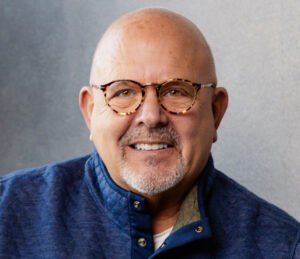Healing from childhood trauma and toxic stress recovery is possible, even many years later. This blog provides information and suggestions based on the work of mental health experts focused on childhood trauma recovery from adverse childhood experiences (ACEs). One valuable resource is The Adverse Childhood Experiences Recovery Workbook by Glenn R. Schiraldi, PhD. This book offers strategies to address low self-esteem, shame, depression, anxiety, emotional well-being, and other long-term effects of toxic stress recovery during childhood.
The Role of Love in Healing
According to Schiraldi, love is crucial for healing the traumatized brain. Love encompasses caring, respect, acceptance, compassion, gentle friendliness, and concern. It changes the brain and body in beneficial ways and helps to soften traumatic memories. Even if love was absent during childhood, it can be learned and experienced later in life.
Steps to Begin Healing
- Open Up
Find someone you trust and share your feelings and experiences honestly for effective childhood trauma recovery and toxic stress recovery. It is important to have a constructive outlet for your painful secrets and to be surrounded by supportive people, enhancing your emotional well-being. Sharing your experiences can relieve the burden of carrying secrets, which is crucial for trauma healing. The act of speaking about your trauma can reduce feelings of isolation. Trusted individuals can offer perspectives that help you process your experiences, which is essential in supportive therapy for trauma survivors. Honest conversations can lead to emotional relief, fostering resilience and aiding in mental health recovery. Knowing you are heard and understood can provide comfort, which is a fundamental part of building support networks for trauma.
- Develop Healing Attitudes
Acknowledge your strength and resilience in surviving adverse experiences, which is vital for childhood trauma recovery and toxic stress recovery. Recognize the inner strength you possess and work on developing it further, a key aspect of trauma healing. Admitting your strength is the first step in building resilience. Accepting that you endured and survived can be empowering, fostering a positive outlook essential for emotional well-being. Believing in your strength can motivate further healing efforts, encouraging self-growth. Building on this foundation can lead to personal development, and adopting healing attitudes can enhance emotional well-being. Positive self-perception can reduce negative feelings, contributing to overall mental health recovery.
- Self-Care
Identify activities that bring you joy, peace, and relief. Make a list of these activities and refer to it when recovery becomes challenging. Focus on sleep, nutrition, and exercise to care for your brain. Celebrate small self-care tasks, even the mundane ones. Listing joyful activities can serve as a reminder. Engaging in these activities can provide emotional support. Proper sleep is essential for mental health. Nutrition plays a role in overall well-being. Exercise contributes to physical and mental health. Small tasks can have a cumulative positive effect. Self-care is an ongoing process. Consistency in self-care can improve recovery outcomes.
- Practice Patience
Healing is a process that takes time and effort, especially in childhood trauma recovery and toxic stress recovery. Be patient with yourself through the highs and lows, and ask your loved ones to be patient as well, as support networks for trauma survivors are crucial. Understanding that healing is gradual can set realistic expectations, promoting resilience. Accepting the process can reduce frustration, fostering emotional well-being. Being patient allows for natural progress, an essential aspect of mental health recovery. Loved ones’ patience can provide additional support, aiding in trauma healing. Recognizing the effort involved can validate your journey, contributing to positive self-perception. Patience can prevent feelings of discouragement, which is essential for maintaining hope during childhood trauma recovery. Progress may come in small steps, each step forward being part of the healing process and leading toward well-being.
- Feed Your Soul
Research indicates a positive correlation between spirituality and well-being. Spirituality can involve knowing that God loves you, being involved in a church, experiencing daily spiritual moments, feeling thankful for blessings, feeling forgiveness, and collaborating with God to solve problems. Spiritual beliefs can provide a sense of purpose, while participation in a community offers support. Daily spiritual practices foster inner peace, enhance resilience, and shift focus to positive aspects of life, aiding in childhood trauma recovery and toxic stress recovery. Integrating spirituality into self-care routines can support those undergoing trauma healing, improve emotional well-being, and provide a holistic approach to mental health recovery.
- Consider Therapy
Some trauma may require professional therapy for trauma. Therapy can help you process the past, create stability in the present, and provide tools for the future. Proven therapies like EMDR and Accelerated Resolution Therapy are recommended for healing childhood trauma. Professional guidance can offer specialized support, making it an essential part of childhood trauma recovery and toxic stress recovery. Therapists can provide techniques for managing trauma and facilitating emotional processing. Stability in the present can be achieved through structured support and enhancing emotional well-being. Future tools can be learned for ongoing well-being. EMDR is a structured therapy designed for trauma recovery, while Accelerated Resolution Therapy focuses on resolving traumatic memories. Therapy can be a safe space for healing, contributing to overall mental health.
Suggested Reading
The Adverse Childhood Experiences Recovery Workbook by Glenn R. Schiraldi, PhD
The Unexpected Gift of Trauma: The Path to Posttraumatic Growth by Dr. Edith Shiro
What Happened To You? Conversations on Trauma, Resilience, and Healing by Bruce
- Perry, MD, PhD, and Oprah Winfrey
Own Your Past, Change Your Future by Dr. John Delony
GRIT: The Power of Passion and Perseverance by Angela Duckworth
What My Bones Know: A Memoir of Healing from Complex Trauma by Stephanie Foo
Resources for Further Support
Center for Disease Control – CDC.gov
National Child Traumatic Stress Network – NCT














